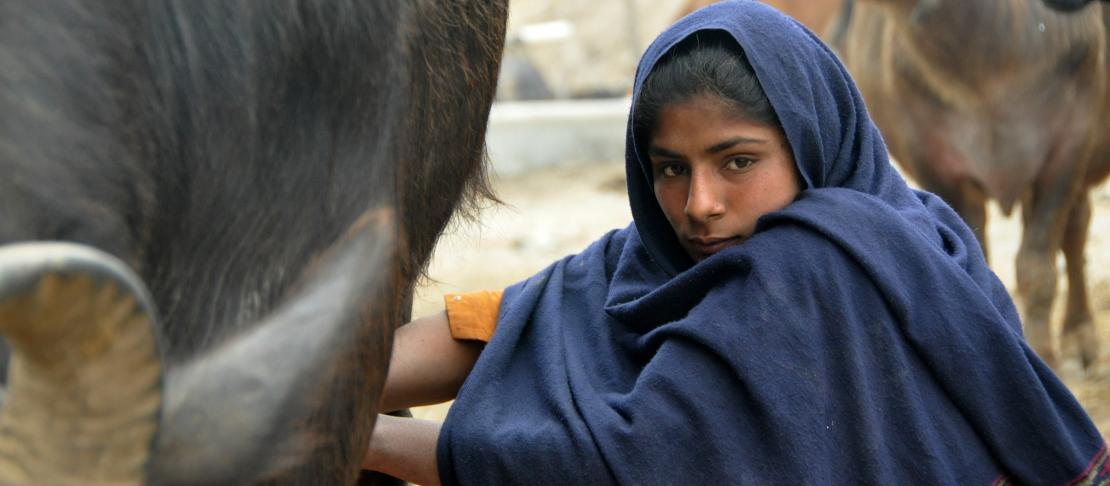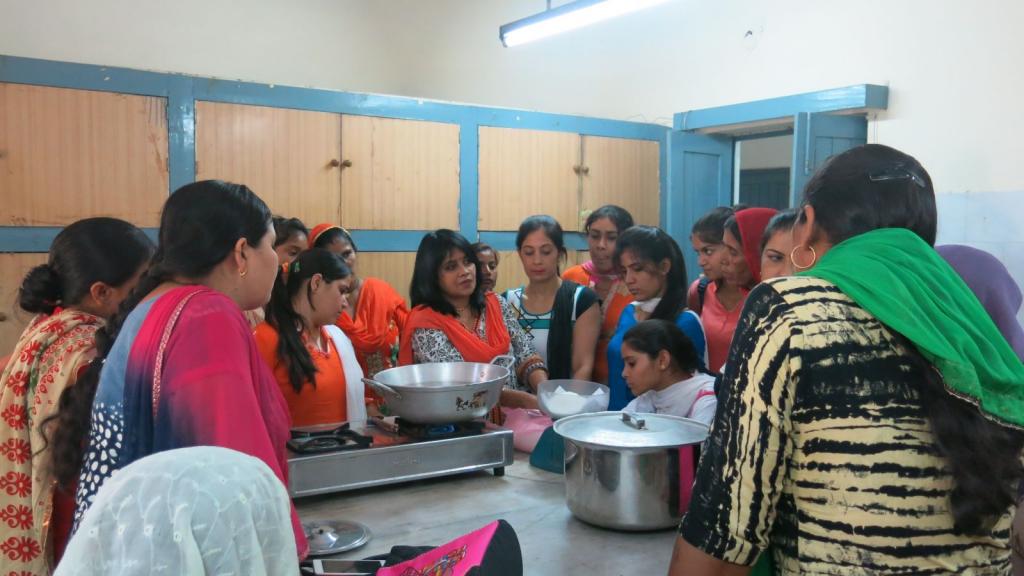Empowering women for climate-smart crop-dairy farming systems

Developing the skills of women farmers in furthering climate-smart agricultural practices.
According to the latest census data, the female share of the agricultural labour force in India is close to 37%. Given the conspicuous involvement of women in the sector, further interventions become imperative when assessing women’s ease of performing agricultural tasks as compared to men. Through various studies undertaken time and again, the glaring gap in Indian agriculture in relation to gender gets highlighted and a lot remains to be done in order to bridge the same.
The International Maize and Wheat Improvement Centre (CIMMYT), CCAFS recently held a workshop to address and help enhance the role of women in decision making in the domain of climate-smart agriculture. The workshop titled, ‘Empowering Women for Climate-Smart Crop-Dairy Farming Systems: Post Harvest Management, Value Chains and Market’ was held on 23rdand 24th May at Karnal, which was organized jointly by Indian Council of Agricultural Research (ICAR)-National Dairy Research Institute (NDRI), ICAR-Central Soil Salinity Research Institute (CSSRI) & CIMMYT with the following objectives:
- Adoption of climate-smart technologies among women farmers to increase decision making by getting engaged in farm budgeting and agri-allied activities and
- Entrepreneur skill development on post-harvest technologies, livestock management, market knowledge and value creation, thereby translating it into an income source.
35 women participants from villages Basatada, Kutail, Daha and Rindal from Karnal attended the workshop to imbibe from its capacity development initiative.
Workshop trainings
Dr R.B.B. Singh, Director of NDRI, commenced the workshop by referring to the relevance of such initiatives in sensitizing audiences about technologies while disseminating knowledge and enhancing their learning. He pointed out that milk production is an area where women have been and can continue playing a significant role, within the context of livestock management. Such involvement if heightened can be visibly beneficial for agricultural systems as a whole, as was alluded to by Dr M.L. Jat, Principal Scientist at CIMMYT and leader of the CCAFS Flagship project on climate-smart agriculture. While referring to a World Bank report that points towards an ‘ increase in agricultural production by 20% with empowered women' he pointed out that such an increase necessitates optimum utilization of youth and women’s capacities in addition to minimizing post-harvest losses and crop diversification. Accordingly, “we have a major focus on empowering gender and youth through CSA in our CCAFS projects” he added. Dr Jat also strongly emphasized the imminent need for technology adoption and enhanced household decision-making ability of women for positive returns in the sector. Dr PC Sharma, Director of CSSRI highlighted the importance of women’s collaborative groups in acquiring higher prices for dairy products after value additions and formalizing links with markets.
Dr Deepa Chandra, Technical Officer at KVK NDRI, Haryana, along with other subject experts, took the initiative for training the participants hands-on in post-harvest management of fruits and vegetables, scientific dairy farming, dairy products making, among others. The participants were provided with in-depth knowledge on the importance of crop-dairy farming systems along with knowledge on modern techniques in livestock management to help increase income yield.
During the Dairy Value Addition training in Karnal, Haryana. The female farmers participating in the workshop receive training on ways for value addition to the dairy products for enhanced income generation. Photo: CIMMYT
The women farmers were exposed to the participatory climate-smart research platforms, wherein they witnessed the potential benefits that can be harnessed from various climate-smart agriculture practices like laser land levelling, zero tillage, residue management, direct seeding of rice, precision nutrient management using Nutrient Expert tool, Green Seeker sensor etc. in isolation as well as in portfolio (bundling of these techniques). Since most of these women farmers are primarily engaged in dairy farming (primary) as well as crop farming (secondary), they could gather maximum benefit from exposure to such trainings as they could relate these climate-smart crop management techniques to their own farming practices.
Further, more practical sessions were organized to enhance awareness on value addition to farm products, increasing the shelf life of dairy products, grains, fruits and vegetables as ways for keeping intact income sources. The sessions were organized with the overarching agenda of skill development of the women participants who would consequently be better equipped to meet the competitive criteria of the market.
Feedback and outcome
Since the trainings were need based with a specific focus on knowledge dissemination, pre-workshop questions were asked about the participants’ existing knowledge as well as their learning aspirations. Post workshop feed-back was collected to record the levels of knowledge gain as well as areas for future trainings. The data thus collected was systematically analysed in order to arrive at the best possible ways for scaling women’s participation in furthering technology adoption in the Climate-Smart Villages. From the collected data it was gathered that out of the participating trainees, 68% were already using some kind of climate-smart technique at their farms. It was also seen that post training, their knowledge on climate-smart technologies (green seeker, nutrient expert, farm budgeting, turbo happy seeder, crop diversification) increased from 48% to 77%. Market-related knowledge was seen to increase from 25% to 68%, while understanding of post-harvest technologies increased from 43% to 77%.
Overall, it was felt that such knowledge awareness sessions and practical trainings would go a long way in equipping the women farmers with the necessary knowledge for adoption of climate-smart and market smart practices through public-private partnerships.
Read more:
Shehnab Sahin is the Communications Specialist at CCAFS South Asia




